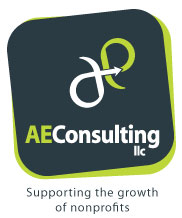This subject matter isn’t our forte nor are we qualified to provide legal advice, but we found the following quotes taken from the Nonprofit Law Blog’s
“Quotes from Glee and Nonprofit Governance” highly informative and most importantly, quite entertaining (laughs are necessary to get through Mondays).
"When my mom applied to college, she put being popular as her main extracurricular activity." - Quinn. Too often, nonprofits recruit board members because of their social status or popularity. They justify this because of the funds and connections they may bring with them. We criticize colleges for accepting students for the same reasons. Shouldn’t nonprofits also recruit and elect board members for their abilities and desire to govern the organization?
“It takes years to build a good reputation, and only seconds to destroy it.” - Will. Doesn’t this apply almost everywhere? There are so many ways to ruin an organization’s reputation. Some bad fact patterns: board members using organizational resources to benefit themselves, unprofessional conduct of staff and other representatives, negligent management of organizational resources, and failure to control the organization’s communications (including through social media vehicles). Make sure the board is attentive to the need to protect the organization’s reputation. Use Will’s statement as a talking point at one board meeting.
“You're lashing out at me is fantastically compelling and inappropriate.” - Kurt. A good lashing out can make for great television. But it generally would not be appropriate at a board meeting, where divergent ideas and perspectives should be encouraged, but only if they are delivered respectfully and within an agreed upon framework. Chairs of the board or board committees should be instructed on how to effectively preside at meetings consistent with the organization’s values.
“People just don't like me.” - Rachel. “You might wanna work on that.” - Finn. If your organization goes through a multi-year decline in donations, donors, and volunteers, you might wanna work on that … at the board level.
“I have no idea what's going on in this script, and it's not in a cool Inception kind of way." - Finn. It’s important that instructions given by the board to the executive and staff through policies and directives are clear. Be careful of informal directions given by individual board members who have no inherent authority to act and conflicting directions. Make sure your policies are regularly updated and staff trained on understanding them. For example, it may be critical to educate and receive feedback from your development staff about the organization’s gift acceptance policy.
“Status is like currency. When your bank account is full, you can get away with doing just about anything. But right now, we're, like, toxic assets.” - Quinn. When your organization is riding on a wave of strong support, financial health, and programmatic achievements, it may seem like you can do just about anything – expand, pay more, leverage your status in collaborations. But waves eventually break and your organization’s status will also go through valleys as well as peaks. Make sure your plans account for these fluctuations.
“At what age are you allowed to look back on your life with nothing but regret?” - Emma. At certain times, your organization may need to cut a program, reduce the scope of its services or the number of people it serves, lay off staff, or even dissolve. Yet, there may not be a need to look back with regret. Sometimes, admitting failure is a sign of strength – that the organization was able to take a chance on something new that turned out not to work but would stand as a learning tool for others, or that the organization recognized its mission could be advanced more effectively and/or efficiently by another organization or another way.
On a side note, this legal blog is actually based in California and often covers California issues only. Does anyone know of any great nonprofit legal blogs that are Washington focused?




